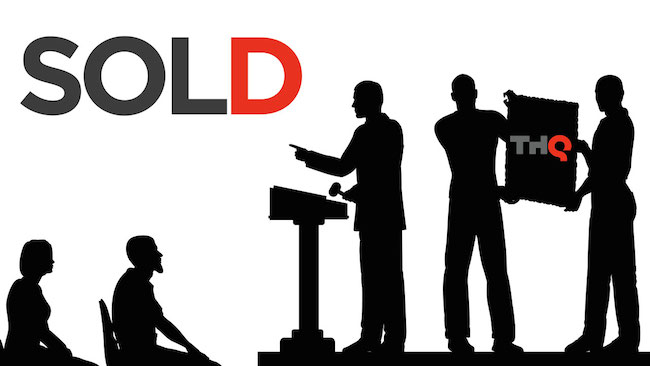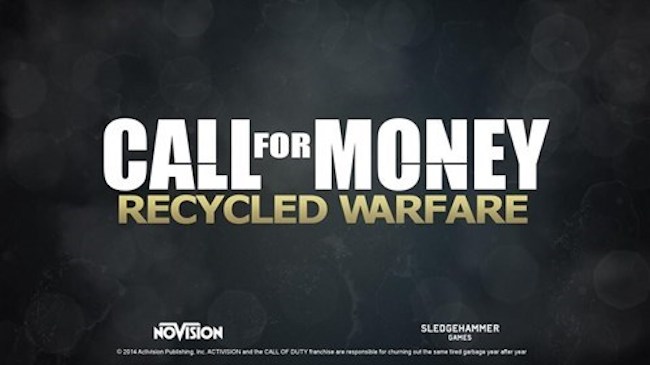
Somewhere along the line, perhaps around the time Call of Duty started to make it big, many large publishers decided that mainstreaming their games and sinking millions into marketing is what would guarantee a large return. Of course, this failed in many cases, and devastatingly so in the case of THQ. In fact, even when some of these games still sold exceptionally well, for example, Tomb Raider; publishers were still reporting losses, or at the very least, dissatisfaction with the sales results. It’s no wonder independent development is so popular right now!

There is a reason why “Indie” titles are so popular, though, and it’s because independent developers are giving people what they want to play. Basically, they’re listening to feedback, engaging with their audiences, and actively working to deliver the best product possible. It’s not rocket science. And yet, the big players, such as Sony and Microsoft, are now chasing down indie studios to self-publish on their platforms, under the assumption this is what the players want. Don’t get me wrong, either. Of course, great talent should be able to manifest itself on these platforms without corporate fingers clawing at their pockets. This is a great step, and in part, the big guns have the right idea; they’re just missing a key piece of the puzzle. It’s product design, not financial independence.
Large publishers have the belief that every game should be full retail, and that if it is genre “x”, then it should then deliver content “y”, and provide “z” amount of hours; even to the detriment of the game. It also must appeal to the broadest audience possible, if it’s going to meet expectations and deliver a good return. And sure, in some cases, that approach might work very well. However, the simple fact is that not every game can mass market the same way as Call of Duty or Assassin’s Creed, and more important, there are still millions of us who want something different. Why does every game need to be priced exactly the same? Why does every genre have to have a strict set of expectations? And why does every game have to be delivered the same way? The real answer is, it doesn’t.

Independent Studios will always have the advantage of engaging in a more personal relationship with their fans, that’s a given, and for some, that might be exactly the sort of quality that appeals to you the most. However, a major component in the popularity of these games are things that big publishers could easily incorporate into future projects. To put it bluntly, not every game needs to be the largest investment, with the expectations of the largest return. “AAA” is meant to represent quality, and in a creative industry, that opens the doors for many possibilities. “The Walking Dead” is a great example of unconventional thinking, delivery and pricing, and while it’s not pulling the same dollars as Call of Duty, Telltale is most certainly earning a sizable return on their investment.
Fortunately, however, this trend hasn’t gone entirely unnoticed, which in turn, brings me to the point of this editorial. Ubisoft, the creators of Assassin’s Creed, another major industry conglomerate, appear to have realised, in part, what makes these independent games successful, and without leaving their big ideas in the dust, they decided to invest separately into a smaller “AAA” project. This game is called, Child of Light, and it is a turn-based RPG, with an artistic style inspired by Studio Ghibli, which is 10 hours long, and priced at $14.95. It is about as far away from their major brands you could get, and yet, it is one of the most beautiful games I have ever played. It is clear Ubisoft went in with a creative vision, and with the resources available, delivered exactly what they intended.

I personally support the idea of pricing a game based on the value the developers believe they are providing; irrelevant of genre, or hours played. Last year we had an unconventional title called Gone Home, which was roughly two hours long, and priced at $19.99. At first, many people thought this was outrageous because of pricing conventions, and yet, the game was consistently praised for thinking outside the box, and in the end, proved to be a successful venture for the first-time studio. In turn, I can’t help but admire a massive corporation investing in a turn-based RPG that is deliberately short, stunningly high in quality and presentation, and priced at a much lower point than they could have got away with. It’s the breath of fresh air that the “AAA” industry needed.
At this point, it’s still early days in terms of sales numbers, so I can’t imply whether it will change anything in the industry. In truth, it could even work to discourage the aforementioned point of view if it doesn’t sell well. However, regardless of its position, I can tell you right now that we have an opportunity to send an important message to all of the larger publishers. Sure, Child of Light isn’t a perfect game, and I can’t guarantee it will be for everyone, either. In saying that, though, its success could actually inspire more mid-tier “AAA” games, and in turn, benefit a lot of different audiences in time. I earnestly encourage anyone with the slightest curiosity to try it out, as your investment could help to create an entirely new venture. We need more games like Child of Light, please.











